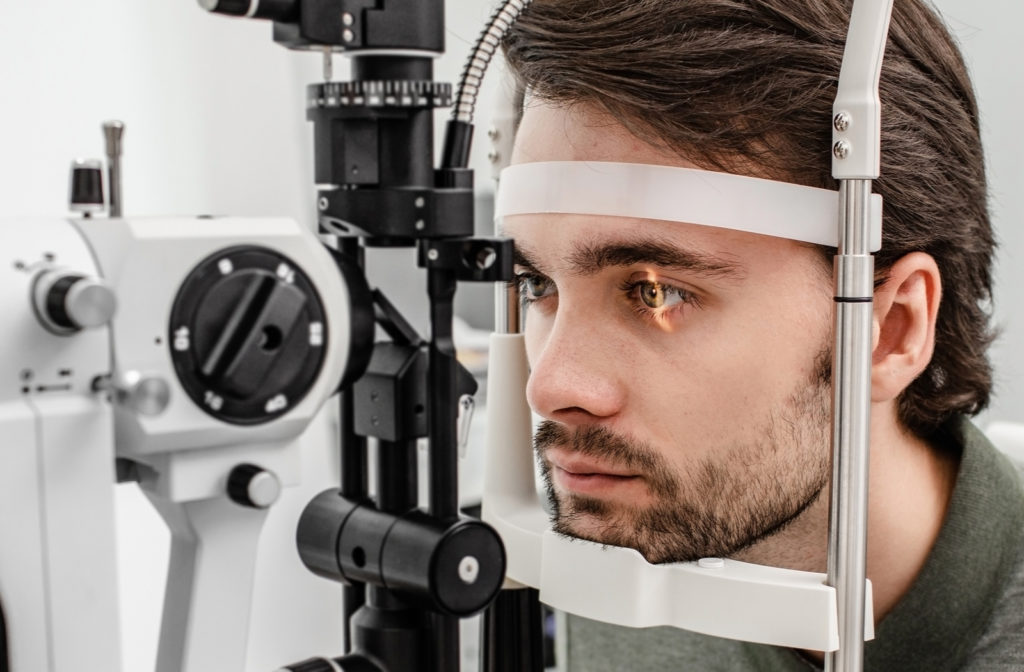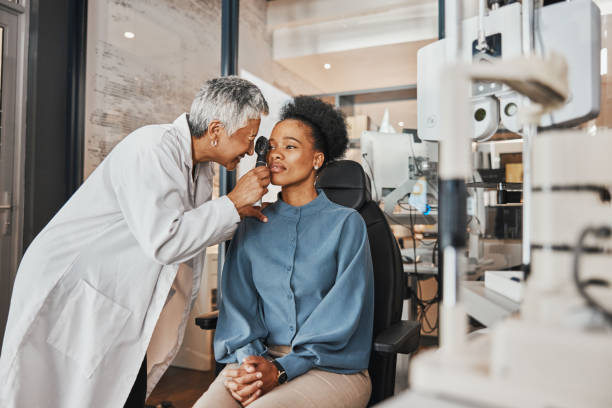Top-Rated Optometrist Montgomery for Clearer Vision
Top-Rated Optometrist Montgomery for Clearer Vision
Blog Article
The Significance of Routine Eye Tests: Insights From a Seasoned Ophthalmologist
Regular eye exams serve as a crucial element of healthcare that prolongs past plain vision adjustment. An experienced eye doctor can supply insights into just how these assessments not only discover common eye conditions yet likewise reveal underlying health issues that might or else go undetected. The silent development of conditions such as glaucoma and macular degeneration emphasizes the need of very early detection. Recognizing the frequency and relevance of these assessments can ultimately affect one's long-lasting wellness trajectory, increasing the concern of exactly how commonly individuals need to prioritize their eye health and wellness in the context of general wellness.
Advantages of Normal Eye Exams
Although numerous people may forget the significance of normal eye exams, these assessments play a crucial function in preserving general wellness and health. Routine eye exams serve not just to evaluate vision however also to discover very early signs of systemic health concerns, consisting of diabetes mellitus and hypertension. By recognizing these problems at their inception, individuals can receive timely treatments, dramatically improving long-lasting outcomes.
Additionally, eye examinations can help in checking existing wellness concerns, making certain that any adjustments in vision or eye wellness are immediately addressed (optometrist). The evaluations enable customized recommendations pertaining to glasses, way of living changes, and safety actions against prospective eye strain or damages
Beyond physical health and wellness, the advantages of regular eye tests prolong to improving quality of life. Eventually, focusing on eye tests promotes an aggressive strategy to wellness monitoring, equipping people to take fee of their wellness.
Common Eye Conditions Detected
Normal eye examinations contribute in discovering a selection of typical eye conditions that can substantially impact vision and overall wellness. Among one of the most widespread conditions identified throughout these evaluations are refractive mistakes, consisting of myopia (nearsightedness), hyperopia (farsightedness), and astigmatism. These conditions typically show up as blurred vision and can be easily remedied with prescription glasses or get in touch with lenses.
Another common problem is glaucoma, a team of eye conditions that harm the optic nerve, often connected to increased intraocular pressure. Early discovery is essential as it can avoid irreversible vision loss.
Age-related macular deterioration (AMD) is one more considerable problem that impacts central vision, specifically in people over 50. Lastly, diabetic person retinopathy, a difficulty of diabetes, can cause extreme vision impairment if not kept an eye on on a regular basis. Through detailed eye examinations, these problems can be recognized early, allowing for prompt administration and treatment to preserve vision and boost lifestyle.
Relevance of Very Early Discovery
Early discovery of eye problems plays a vital role in protecting vision and stopping substantial health problems. Several eye illness, such as glaucoma, diabetic retinopathy, and age-related macular degeneration, can progress calmly without visible signs and symptoms in their very early stages. By the time symptoms manifest, permanent damages might have taken place, bring about irreversible vision loss.
Normal eye tests help with early diagnosis, permitting for timely treatment and therapy. For example, dealing with elevated intraocular stress can avoid the onset of glaucoma, while managing blood sugar level levels can significantly minimize the threat of diabetic retinopathy. Additionally, problems like cataracts can be successfully taken care of with surgical treatment when recognized early.

Exactly How Frequently Should You Check Out?
Figuring out the regularity of eye exams is crucial for maintaining ideal eye wellness and vision. The general referral for adults is to have a detailed eye exam every one to 2 years, relying on specific threat aspects and age. For individuals matured 18 to 60, an exam every 2 years is normally adequate if no vision problems exist. Nevertheless, those over 60 should think about yearly exams, as the danger of age-related conditions increases substantially.
People with specific danger variables, such as a family members history of eye condition, diabetic issues, or existing vision problems, may call for more regular analyses. Children must have their initial eye test at six months of age, complied with by added tests at age three and prior to going into college. Routine exams during youth are crucial as vision can change quickly throughout developing click to find out more years.
Ultimately, the frequency of brows through ought to be tailored per person's circumstances, including way of life, job-related threats, and any kind of pre-existing eye problems. Consulting with an eye care expert can provide personalized referrals, guaranteeing that your eye wellness is regularly kept an eye on and maintained.
Tips for Your Eye Examination
Preparing for your eye test can boost the efficiency of the visit and make sure a comprehensive analysis of your eye health. To optimize your time with the eye medical professional, it is important to collect relevant info before your appointment. Begin by putting together a checklist of any medicines you are presently taking, consisting of over-the-counter medications and supplements, as these can affect eye wellness.
Additionally, document any type of signs and symptoms you have actually experienced, such as obscured vision, pain, or headaches. This information will help your optometrist in diagnosing potential problems. If you use glasses or get in touch with lenses, bring them along, also if you don't wear them frequently. This will certainly aid the medical professional assess any modifications in your vision.
It is also helpful to have a family members background of eye problems available, as genetic elements can contribute to your eye health. Finally, think about scheduling your exam for a time when you are much less rushed, allowing you to ask questions and review your problems extensively. By preparing properly, you guarantee that your eye exam is effective which your optometrist has all the needed info to provide the most effective care feasible.

Final Thought
Regular eye examinations play an important role in preserving both vision and total health and wellness. Inevitably, focusing on thorough eye assessments adds substantially to the conservation of vision and the enhancement of top quality of life, underlining the requirement of regular eye treatment in preventive health care approaches.
Regular eye examinations are critical in spotting a range of common eye conditions that can substantially influence vision and general health and wellness.Determining the regularity of eye tests is essential for preserving optimum eye health and vision.Preparing for your eye examination read the full info here can enhance the effectiveness of the see and ensure an extensive evaluation of your eye health (optometrist). By preparing effectively, you make certain that your eye exam is efficient and that your eye physician has all the essential information to offer the finest treatment Visit Your URL feasible
Ultimately, focusing on comprehensive eye assessments contributes dramatically to the conservation of vision and the renovation of quality of life, highlighting the requirement of routine eye care in precautionary health care approaches.
Report this page